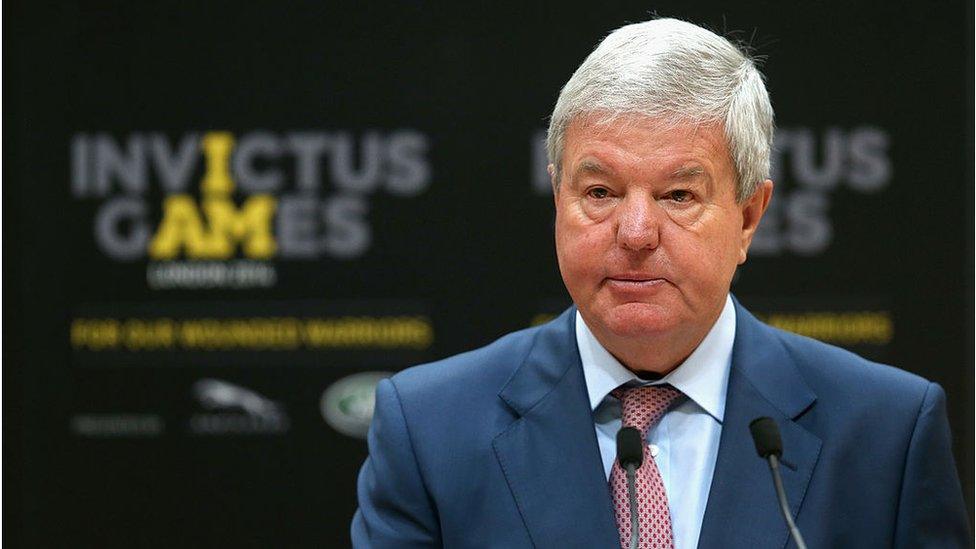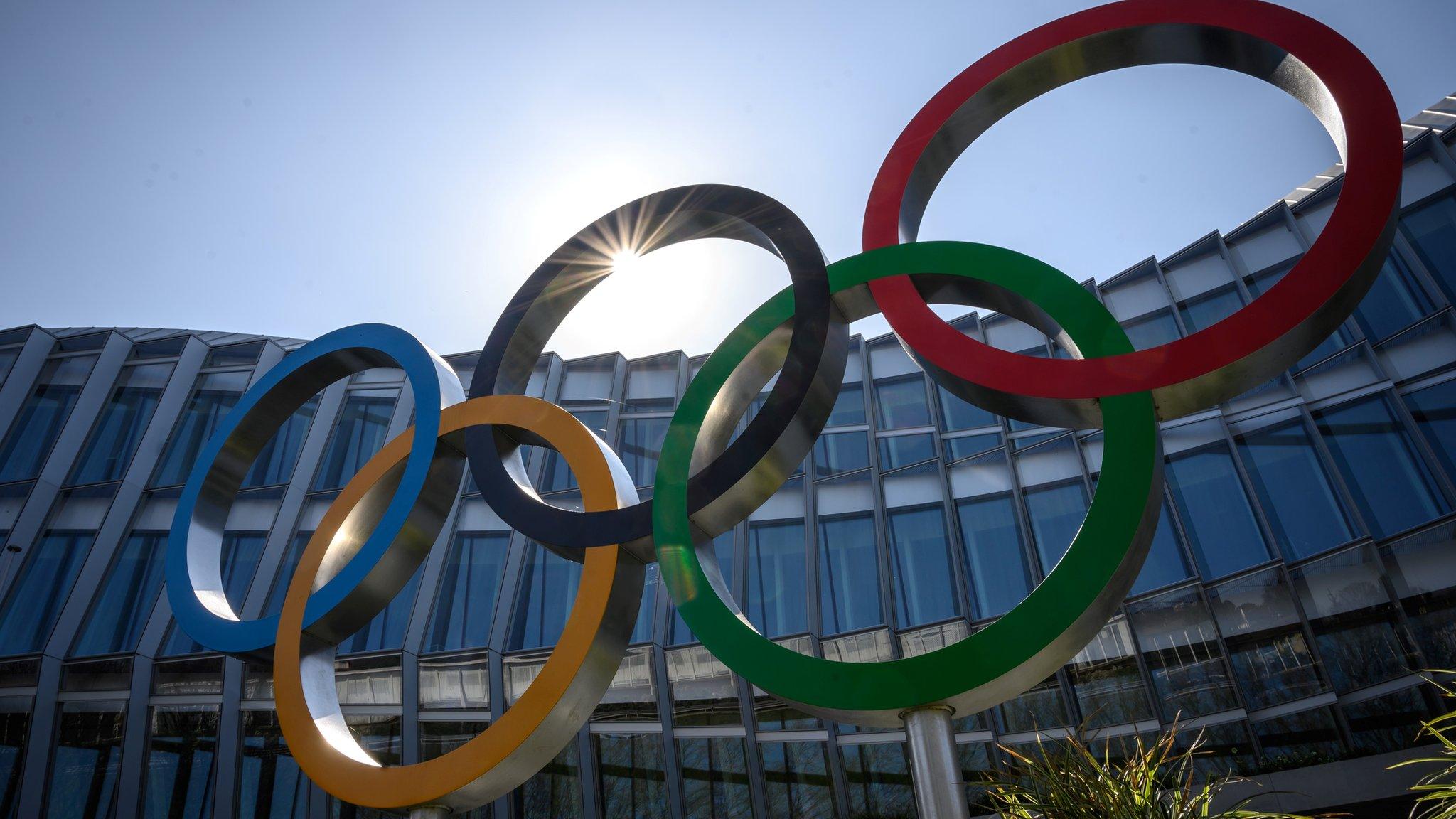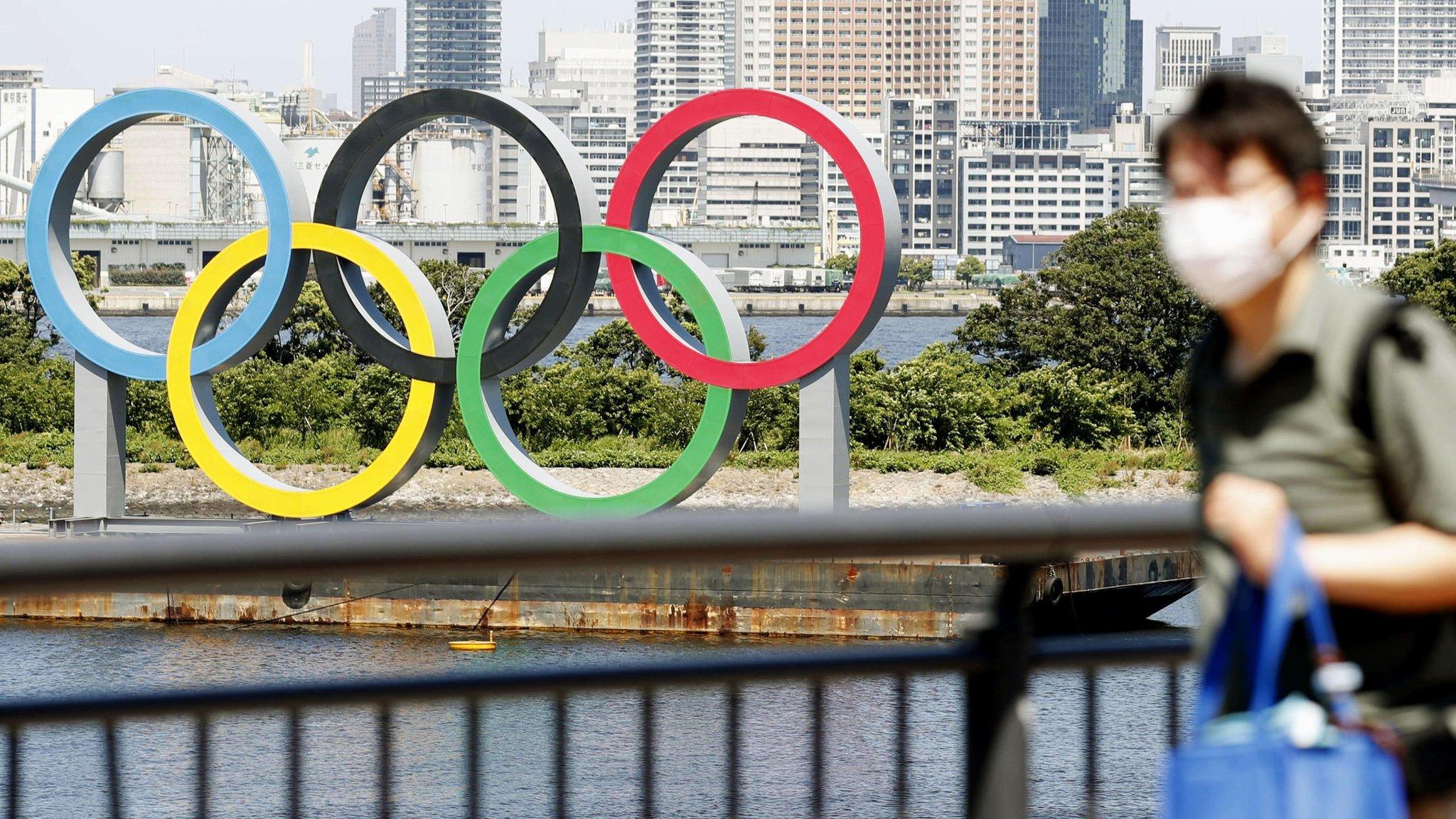Tokyo Olympics 'unlikely to go ahead in 2021'
- Published
- comments

The former chief executive of the London 2012 Olympics says it is "unlikely" that the Tokyo Games will take place this summer due to the Covid-19 pandemic.
Entrepreneur Sir Keith Mills told the BBC that organisers should now be "making plans for a cancellation".
Tokyo is currently in a state of emergency after a surge of coronavirus cases in the Japanese capital.
It is due to host world sport's biggest event in just six months time.
The showpiece has already been subject to an unprecedented year-long postponement as a result of the crisis.
The official cost has increased by 22% to £11.5bn, with the renegotiation of contracts and more security measures adding £2.1bn to the bill.
Speaking exclusively to Radio 5 Live's Wake Up To Money, Sir Keith said, "I think they'll leave it to absolutely the last minute in case the situation improves dramatically, in case the vaccinations roll out faster than we all hoped. It's a tough call.
"Personally, sitting here looking at the pandemic around the world, it looks unlikely I have to say.
"If I was sitting in the shoes of the organising committee in Tokyo, I would be making plans for a cancellation and I'm sure they have plans for a cancellation. They've got another month or so before they need to make a call."
Games uncertainty
The Olympics are scheduled to run from 23 July to 8 August, with the Paralympics due to follow from 24 August to 5 September, but ten months on from their postponement, there is growing concern over the viability of the rescheduled events.
Last week, Taro Kono became the first Japanese cabinet minister to admit a decision on hosting the Games was uncertain, admitting it "could go either way".
The Prime Minister Yoshihide Suga has vowed to forge ahead with plans despite mounting public opposition.
A recent Kyodo News survey found around 80% of Japanese people want a cancellation or postponement.
Sir Keith, who now chairs the Invictus Games for wounded military veterans, said: "It's not just the infections in Tokyo, it's the infections in all the competing nations.
"The challenge is whether enough competitors and enough countries can visit Japan and make it a really viable games.
"We shouldn't forget the Paralympics. Many of the competitors have underlying health conditions so flying around the world competing will be a challenge for them."
More than 11,000 athletes from around 200 countries were scheduled to take part in the 2020 Games.
It is not clear how travel restrictions might hit their participation as Japan's borders are currently largely closed to foreign visitors.
Last year, International Olympics Committee (IOC) President Thomas Bach told the BBC the Games would have to be cancelled if it cannot take place this summer.
Economic hit
Describing a cancellation as a "tragedy", Sir Keith said there would be a major financial impact for hundreds of national Olympic committees and sports federations, because "many of them rely almost entirely on the money the Games generates.
"So if you're running badminton somewhere in South America, suddenly your funding disappears and your sport is under significant threat so the knock-on effect of this - not just in Tokyo - but all around the world, shouldn't be underestimated. It is massive.
"If the games don't happen it'll be a huge economic blow to the IOC."
He said the economics of the Olympics are complex, and that for London, much of the upside came from the regeneration of the city's east end.
"The prestige, the spotlight on Japan and Tokyo, they'll lose that if they have to cancel, which would be tragic.
"It's left the sports event industry in a really dreadful position because [organisers] invest hundreds of millions of pounds in putting on events, but have an insurance policy.
"Right now you're lucky if you can get event cancellation insurance, and even if you can get it, the terms and conditions are really onerous now. So the whole premise of running large-scale events where cancellation is always a possibility… if there's no insurance there who's going to take the risk?"
Related topics
- Attribution
- Published1 January 2021

- Attribution
- Published8 September 2020
